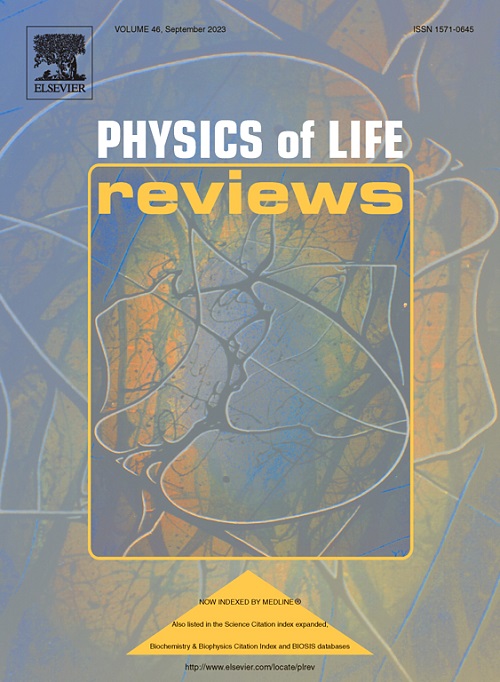To enhance or not to enhance: A debate about cognitive enhancement from a psychological and neuroscientific perspective
IF 14.3
1区 生物学
Q1 BIOLOGY
引用次数: 0
Abstract
The enhancement of humans’ core cognitive abilities–such as intelligence–is a frequently debated topic in scientific and public discourse. Different enhancement methods such as cognitive trainings, smart drugs, and brain stimulation techniques have been proposed and tested to enhance human’s cognition. In this narrative review, we summarize the main psychological and neuroscientific findings regarding those cognitive enhancement methods. We thereby distinguish passive (e.g., smart drugs) and active enhancement methods (e.g., working memory training)–which require different levels of agency. While for both forms of enhancement there is no (or only little) empirical evidence on their effectiveness to improve overall cognitive abilities, passive methods entail severe risks. Thus, we criticize promoting an overly optimistic view on especially passive enhancement. Furthermore, we highlight which individuals might be willing to enhance themselves, related motivational aspects of cognitive enhancement, and ethical considerations thereof. To raise awareness for the (in)effectiveness and risks of passive and active enhancement, we propose a category framework that distinguishes cognitive enhancement from clinical methods to treat disorders or diagnosed deficits and introduces important dimensions thereof. Finally, we present open questions for psychological and neuroscientific research which should become part of enhancement debates. Taken together, our narrative review provides a broad overview and critical assessment of enhancement-related topics such as effectiveness and risks of enhancement methods, motivational aspects to apply enhancement, and societal implications of cognitive enhancement.
增强或不增强:从心理学和神经科学的角度对认知增强的争论
提高人类的核心认知能力——比如智力——是科学和公共话语中经常争论的话题。不同的增强方法,如认知训练、智能药物和脑刺激技术已经被提出和测试,以增强人类的认知。在这篇叙述性的综述中,我们总结了关于这些认知增强方法的主要心理学和神经科学发现。因此,我们区分被动(例如,智能药物)和主动增强方法(例如,工作记忆训练)——它们需要不同层次的代理。虽然这两种形式的增强都没有(或只有很少)经验证据表明它们对提高整体认知能力的有效性,但被动方法会带来严重的风险。因此,我们批评提倡对特别是被动增强过于乐观的看法。此外,我们强调了哪些个体可能愿意提高自己,认知增强的相关动机方面,以及与之相关的伦理考虑。为了提高对被动和主动增强的有效性和风险的认识,我们提出了一个分类框架,将认知增强与治疗疾病或诊断缺陷的临床方法区分开来,并介绍了其重要维度。最后,我们提出了心理学和神经科学研究的开放性问题,这些问题应该成为增强辩论的一部分。综上所述,我们的叙述性回顾提供了一个广泛的概述和关键的评估增强相关的主题,如增强方法的有效性和风险,动机方面的应用增强,认知增强的社会影响。
本文章由计算机程序翻译,如有差异,请以英文原文为准。
求助全文
约1分钟内获得全文
求助全文
来源期刊

Physics of Life Reviews
生物-生物物理
CiteScore
20.30
自引率
14.50%
发文量
52
审稿时长
8 days
期刊介绍:
Physics of Life Reviews, published quarterly, is an international journal dedicated to review articles on the physics of living systems, complex phenomena in biological systems, and related fields including artificial life, robotics, mathematical bio-semiotics, and artificial intelligent systems. Serving as a unifying force across disciplines, the journal explores living systems comprehensively—from molecules to populations, genetics to mind, and artificial systems modeling these phenomena. Inviting reviews from actively engaged researchers, the journal seeks broad, critical, and accessible contributions that address recent progress and sometimes controversial accounts in the field.
 求助内容:
求助内容: 应助结果提醒方式:
应助结果提醒方式:


